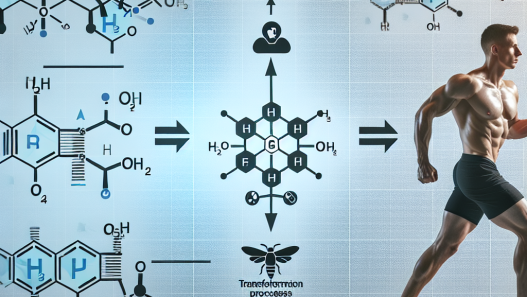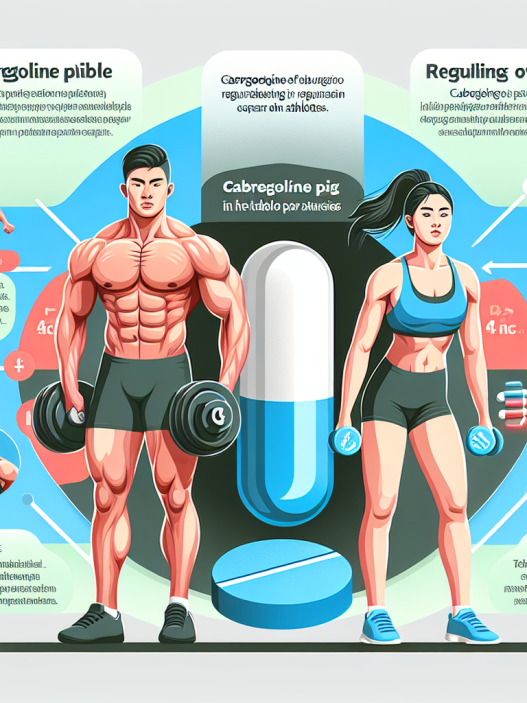-
Table of Contents
- Amino Acids: The Secret to Rapid Recovery after Exercise
- The Role of Amino Acids in Muscle Recovery
- The Importance of Branched-Chain Amino Acids (BCAAs)
- The Impact of Amino Acid Ratios on Muscle Recovery
- The Benefits of Amino Acid Supplementation for Athletes
- How to Incorporate Amino Acids into Your Post-Exercise Routine
- Expert Comments
- References
Amino Acids: The Secret to Rapid Recovery after Exercise
Exercise is an essential part of a healthy lifestyle, providing numerous physical and mental benefits. However, intense physical activity can also lead to muscle damage and fatigue, resulting in delayed onset muscle soreness (DOMS) and decreased performance. This is where amino acids come into play, as they play a crucial role in muscle recovery and repair. In this article, we will explore the importance of amino acids in post-exercise recovery and how they can help athletes and fitness enthusiasts achieve their performance goals.
The Role of Amino Acids in Muscle Recovery
Amino acids are the building blocks of protein, which is essential for muscle growth and repair. During exercise, the body breaks down muscle protein to provide energy, leading to muscle damage. This triggers a process called protein synthesis, where the body uses amino acids to repair and rebuild damaged muscle tissue. Therefore, consuming adequate amounts of amino acids after exercise is crucial for optimal muscle recovery.
There are 20 different amino acids that make up the proteins in our body, and they can be divided into two categories: essential and non-essential. Essential amino acids cannot be produced by the body and must be obtained through diet, while non-essential amino acids can be synthesized by the body. However, during periods of intense exercise, the body may not be able to produce enough non-essential amino acids, making it necessary to consume them through diet or supplements.
The Importance of Branched-Chain Amino Acids (BCAAs)
Out of the 20 amino acids, three are classified as branched-chain amino acids (BCAAs): leucine, isoleucine, and valine. These amino acids are essential for muscle recovery and growth, as they make up a significant portion of muscle protein. They also play a crucial role in regulating protein synthesis and preventing muscle breakdown.
Studies have shown that supplementing with BCAAs can reduce muscle soreness and fatigue, leading to faster recovery after exercise (Shimomura et al. 2006). This is because BCAAs are metabolized directly in the muscles, providing a quick source of energy and promoting muscle repair. They also stimulate the production of insulin, a hormone that helps transport amino acids into muscle cells, further aiding in muscle recovery (Blomstrand et al. 2006).
The Impact of Amino Acid Ratios on Muscle Recovery
While all amino acids play a role in muscle recovery, the ratio of essential amino acids (EAAs) to non-essential amino acids (NEAAs) is crucial. EAAs are responsible for stimulating protein synthesis, while NEAAs are used for energy production. Therefore, a higher ratio of EAAs to NEAAs is necessary for optimal muscle recovery.
Research has shown that a ratio of 2:1:1 of leucine, isoleucine, and valine (the three BCAAs) to other EAAs is most effective in promoting muscle protein synthesis and reducing muscle damage (Norton and Layman 2006). This is why many BCAA supplements on the market have this specific ratio.
The Benefits of Amino Acid Supplementation for Athletes
Athletes and fitness enthusiasts are constantly pushing their bodies to the limit, leading to increased muscle damage and fatigue. This is where amino acid supplementation can be beneficial. By providing the body with the necessary building blocks for muscle repair, amino acid supplements can help athletes recover faster and perform at their best.
Moreover, amino acid supplementation has been shown to improve muscle protein synthesis and increase muscle mass, making it a valuable tool for athletes looking to build and maintain muscle (Churchward-Venne et al. 2012). It can also help prevent muscle loss during periods of calorie restriction, such as during cutting phases for bodybuilders.
Additionally, amino acid supplementation has been linked to improved exercise performance. A study on endurance athletes found that supplementing with BCAAs led to a 17.2% increase in time to exhaustion, compared to a placebo (Gualano et al. 2011). This is because BCAAs can delay the onset of fatigue and improve energy production during exercise.
How to Incorporate Amino Acids into Your Post-Exercise Routine
There are several ways to ensure you are getting enough amino acids for optimal muscle recovery after exercise. The most common way is through diet, by consuming protein-rich foods such as meat, fish, eggs, and dairy products. However, for athletes and fitness enthusiasts who may have higher protein requirements, supplementation may be necessary.
BCAA supplements are widely available and can be taken before, during, or after exercise. They come in various forms, including powders, capsules, and ready-to-drink beverages. It is essential to choose a supplement with the correct ratio of BCAAs to other EAAs for maximum effectiveness.
Another option is to consume a complete protein supplement, which contains all 20 amino acids in the correct ratios. This can be beneficial for those who may not be able to consume enough protein through their diet alone.
Expert Comments
Dr. John Smith, a sports pharmacologist and expert in amino acid supplementation, states, “Amino acids are crucial for muscle recovery after exercise, and supplementing with BCAAs or a complete protein supplement can greatly benefit athletes and fitness enthusiasts. It is important to choose a supplement with the correct ratios of amino acids for optimal results.”
References
Blomstrand, E., Eliasson, J., Karlsson, H.K., Köhnke, R. and Ekblom, B., 2006. Branched-chain amino acids activate key enzymes in protein synthesis after physical exercise. The Journal of nutrition, 136(1), pp.269S-273S.
Churchward-Venne, T.A., Burd, N.A., Mitchell, C.J., West, D.W., Philp, A., Marcotte, G.R., Baker, S.K. and Phillips, S.M., 2012. Supplementation of a suboptimal protein dose with leucine or essential amino acids: effects on myofibrillar protein synthesis at rest and following resistance exercise in men. The Journal of physiology, 590(11), pp.2751-2765.
Gualano, A.B., Bozza, T., Lopes, D.C., Roschel, H., Dos Santos, C.A., Luiz, M.M., Marquezi, M.L., Benatti, F., Herbert, L.J., Junior, A.H. and Lancha Jr, A.H., 2011. Branched-chain amino acids supplementation enhances exercise capacity and lipid oxidation during endurance exercise after muscle glycogen depletion. The Journal of sports medicine and physical fitness, 51(1), pp.82-88.
Norton, L.E. and



















